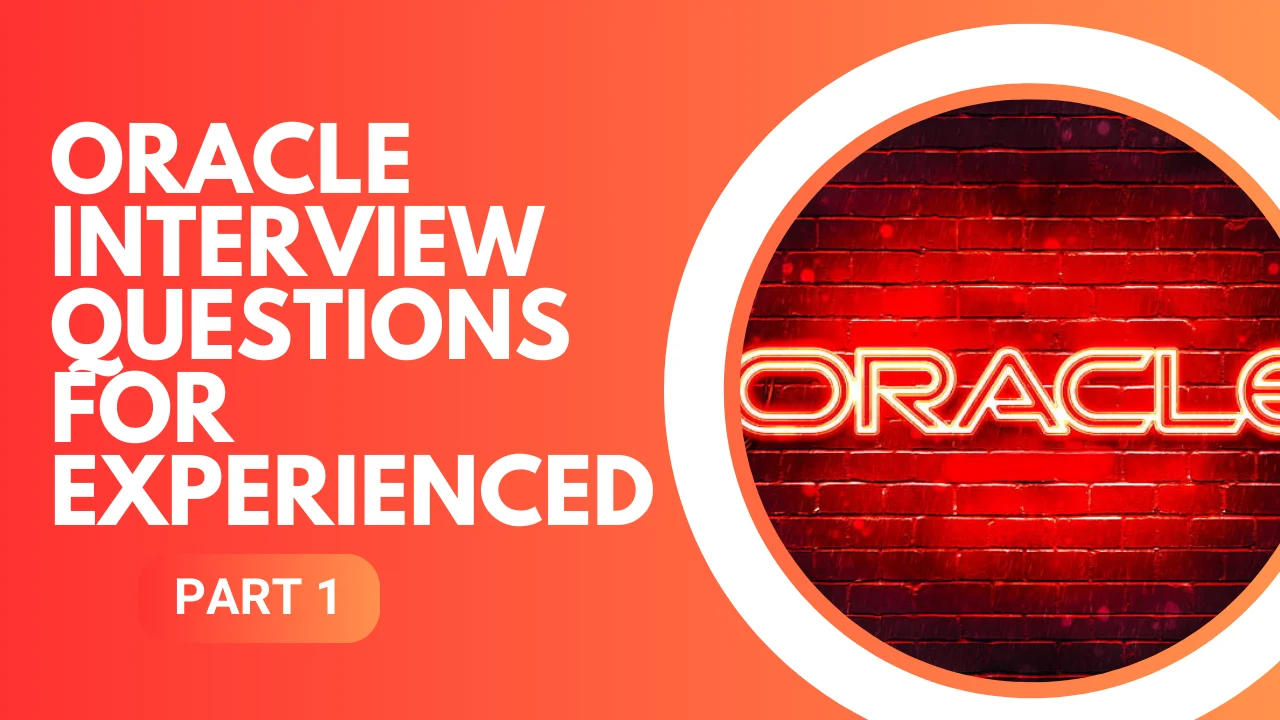Oracle Interview Questions for Experienced Part - 1

1. What are the various modules in Oracle forms?
Oracle Forms typically consist of four main modules: the Menu module, the Canvas module, the PL/SQL library module, and the Object Library module.
2. What is the definition of a "snapshot" in the context of the Oracle database?
A snapshot in the Oracle database refers to a read-only, static view of a set of data from a specific point in time. It enables querying of consistent data without being affected by concurrent changes.
3. How many memory layers does the Oracle shared pool consist of?
The Oracle shared pool consists of two memory layers: the Library Cache and the Data Dictionary Cache.
4. Could you explain the concepts of "save point" and "hash cluster" within the Oracle database?
In Oracle, a save point marks a specific point in a transaction to which you can roll back if necessary. A hash cluster is a method of storing table data to improve retrieval by hashing the rows and storing similar rows together.
5. What are the various types of objects present in an Oracle database?
Oracle database objects include tables, views, indexes, sequences, synonyms, procedures, functions, triggers, and packages.
6. Enumerate the differences between pre-select and pre-query.
Pre-select triggers in Oracle Forms fire before the record is retrieved from the database, while pre-query triggers fire before the query is executed but after the record is fetched from the database.
7. What is a synonym? Can you create a synonym without a table?
A synonym is an alias for a table, view, sequence, procedure, or other schema objects. Yes, you can create a synonym without a table by associating it with another object or even an empty schema.
8. Enumerate the different types of synonyms in Oracle and describe their respective uses.
In Oracle, private synonyms are accessible only to the owner, while public synonyms are accessible to all users. Synonyms simplify access to objects by providing an alternate name for the object.
9. Explain the significance of the control file in Oracle database management.
The control file in Oracle stores metadata crucial for database operations, including database name, data file names and locations, log sequence numbers, and backup information.
10. What does BLOB data type mean in Oracle?
BLOB stands for Binary Large Object, representing a data type used to store binary data, such as images, audio, or video, within the Oracle database.
In conclusion,
Oracle interview questions for experienced professionals aim to delve into various aspects of Oracle database management and development. From exploring database objects and memory structures like the shared pool to understanding crucial concepts like save points and control files, these questions offer a comprehensive view of the candidate’s expertise. Mastery of topics such as parameter handling, snapshots, and data conversion further demonstrates a candidate’s proficiency in Oracle database systems. Part – 1 of this series provides a solid foundation for assessing an experienced candidate’s knowledge, setting the stage for a deeper dive into more advanced topics in subsequent parts.
Ready to take your Oracle skills to the next level? Explore our top-notch Oracle Training in Chennai. Our expert instructors and hands-on approach ensure that you not only ace interviews but also thrive in real-world scenarios. To kickstart your journey to Oracle excellence, contact us at +91 9655-333-334. Secure your future today with the best Oracle Training in Chennai. Don’t miss out on the chance to propel your career forward!





